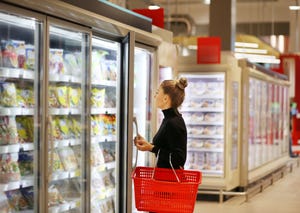Sanderson Farms discusses sustainability progress
Company utilizes wastewater treatment and e-waste recycling to reduce waste.

Sanderson Farms recently provided an update on its sustainability progress, saying it has made significant gains in conservation over the years. Compared to baseline values established in 2008, the company has achieved a 24% reduction in electricity usage, a 43% reduction in natural gas usage and a 44% reduction in water usage.
“Sanderson Farms’ growth over the past two decades is the result of many years of research, planning, hard work and determination,” said Pic Billingsley, Sanderson director of development and engineering. “We strategically select sites in order to build the most innovative and environmentally sustainable facilities in the poultry industry.”
Sanderson utilizes several methods to treat wastewater so it can be discharged directly to streams or used in land application systems. The advanced process allows the company to replenish natural water sources, support stream flow, organically fertilize farmland and irrigate crops. Since beginning these efforts in 2008, the company has won 13 awards for water conservation and wastewater treatment.
“At Sanderson Farms’ wastewater treatment facilities, we aim to minimize the company’s impact on surrounding natural resources by preserving and returning to the environment what the company has utilized throughout our operations,” said Mike Yawn, Sanderson processing environmental supervisor in Collins, Miss. “I believe we should be good stewards of all the natural resources we have been blessed with, for the benefit of ourselves and future generations to come.”
Wastewater processing also allows Sanderson to utilize another valuable resource: renewable energy. Biogas generated during wastewater treatment is captured and treated in the company’s pressure swing adsorption system, resulting in pipeline-quality gas that can be used across its poultry operations. In 2018 alone, the amount of biogas generated could supply the company’s Moultrie, Ga., poultry complex with gas for more than a year-and-a-half.
To deal with technology waste, Sanderson has developed an e-waste recycling program, partnering with companies that specialize in disposing of and recycling outdated technology and equipment. It has also implemented initiatives to reduce packaging waste.
“Sustainability and compliance are not efforts led by the contributions of one or even a few qualified individuals,” said Stephanie Shoemaker, Sanderson manager of environmental services for regulatory and permitting. “It takes the concerted efforts of each and every person within the company and a corporate culture that creates our expectation of innovation and strict compliance with environmental rules and regulations to make an impact.”
Just as sustainability efforts within a company require all the employees to work together, Sanderson said it will take food companies and consumers across the world working together to ensure a sustainable future.
“Whether it’s a company implementing operating policies to ensure efficient use of natural resources or consumers carefully considering what they eat and making food choices that reduce their individual carbon footprint, both groups can make choices that will contribute to the long-term sustainability of the planet and the prudent use of its resources,” the company noted.
About the Author(s)
You May Also Like





